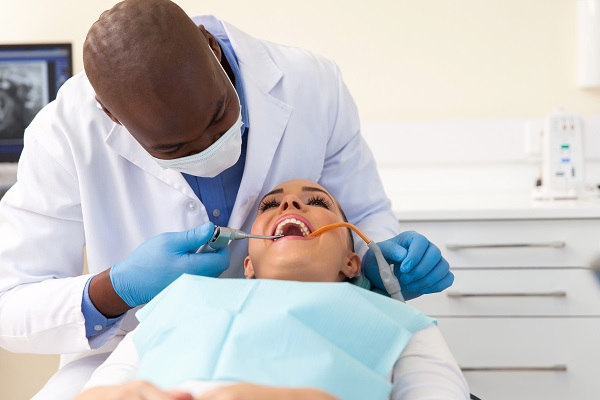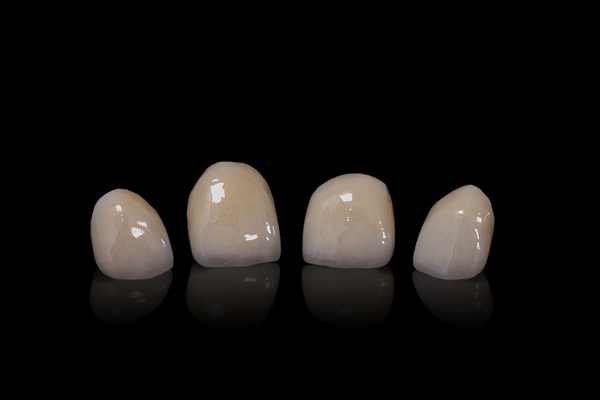How an Emergency Dentist Can Help If You Have a Loose Tooth

An emergency dentist can provide the treatment that you need when you find yourself dealing with a loose tooth. A loose tooth is just one step away from falling out of its socket, so it requires emergency dental care.
Lost adult teeth that fall out need to be quickly replaced to avoid issues that often come up when a tooth is lost, like jawbone tissue deterioration, changes to facial structures, and the remaining teeth becoming misaligned.
Reasons that a tooth might become loose and require treatment from an emergency dentist include:
- Trauma to a tooth: A tooth might be loosened by a blow to the mouth that almost knocks it out of its socket; this might be the result of a fall, hard contact during sports, or an accident
- Gum disease: Gum disease is an infection of gum tissues inside the mouth, and it can damage the gum and bone structures that keep teeth in place; this eventually leads to teeth becoming loose and falling out if left untreated
- Tooth decay: Tooth decay can damage a tooth’s structures to the point that it becomes loose. This is often the case when tooth decay is left untreated
How an emergency dentist treats a loose tooth
Anyone who notices one of their teeth is loose should head to an emergency dentist immediately, regardless of whether the issue is causing pain. The longer that a patient waits for treatment, the more likely that the tooth will fall out. Treating a loose tooth is more straightforward than having to replace a lost tooth with a dental prosthetic, like an implant, and it costs much less.
The most common way for a dentist to treat a loose tooth is using a splint to stabilize it. The procedure involves using a splint to attach the tooth to the teeth surrounding it. This holds the loose tooth in place, giving it a chance to re-bond with the surrounding bone structures.
Loose teeth treatments
If a patient’s tooth is loose because of gum disease, the dentist might recommend other treatments to address it. Treatments that might be used to fix a loose tooth caused by gum disease include:
- Deep cleaning: Also known as root scaling and planing, this treatment can be performed before stabilizing the patient’s tooth with a splint; the procedure involves removing tartar and plaque from teeth, their roots, and gum pockets
- Surgery: If a patient has a loose tooth because of severe damage to their gum or bone tissues, a dentist might recommend surgical treatment to rebuild these damaged bone structures
- Medicinal mouth rinses: Prescription mouth rinses can be used to manage gum disease, enabling the structures around a loose tooth to repair themselves
- Soft tissue/bone grafts: A tooth that has been loosened due to damaged gum or bone tissues in the mouth can be repaired by performing tissue grafts
Fix your loose tooth before it falls out
Are you dealing with a loose tooth? Call or head to our Union clinic immediately to get the treatment that you need.
Request an appointment here: https://www.ismiledentalcarenj.com or call iSmile Dental Care at (908) 810-1234 for an appointment in our Union office.
Check out what others are saying about our dental services on Yelp: Emergency Dentist in Union, NJ.
Related Posts
An emergency dentist provides immediate care for urgent dental issues. Dental emergencies can happen anytime, often causing pain or discomfort that cannot wait for a regular appointment. Recognizing the signs of a dental emergency helps patients seek the right care quickly and can prevent further complications and protect their oral health.A dental emergency calls for…
Wondering what an emergency dentist can do for you? Read on to learn more about this type of dental health professional. Dental emergencies can arise unexpectedly, causing significant discomfort and anxiety. An emergency dentist can help in such cases. They provide immediate care and relief by addressing urgent dental problems that cannot wait for a…
An avulsed tooth is a serious dental problem that should be addressed by an emergency dentist. Emergency dentists are great resources to make use of when something serious happens within the mouth, and an avulsed tooth is certainly such a situation.Want to know how an emergency dentist can save an avulsed tooth? Keep reading to…
There is a lot of news regarding emergency dentistry and the Coronavirus COVID-19 disease these days. As the coronavirus continues to infect people around the globe, your dentist is concerned about your well-being. Most offices are not doing elective, non-emergency procedures right now. However, you can still make an appointment for urgent needs. If you…


